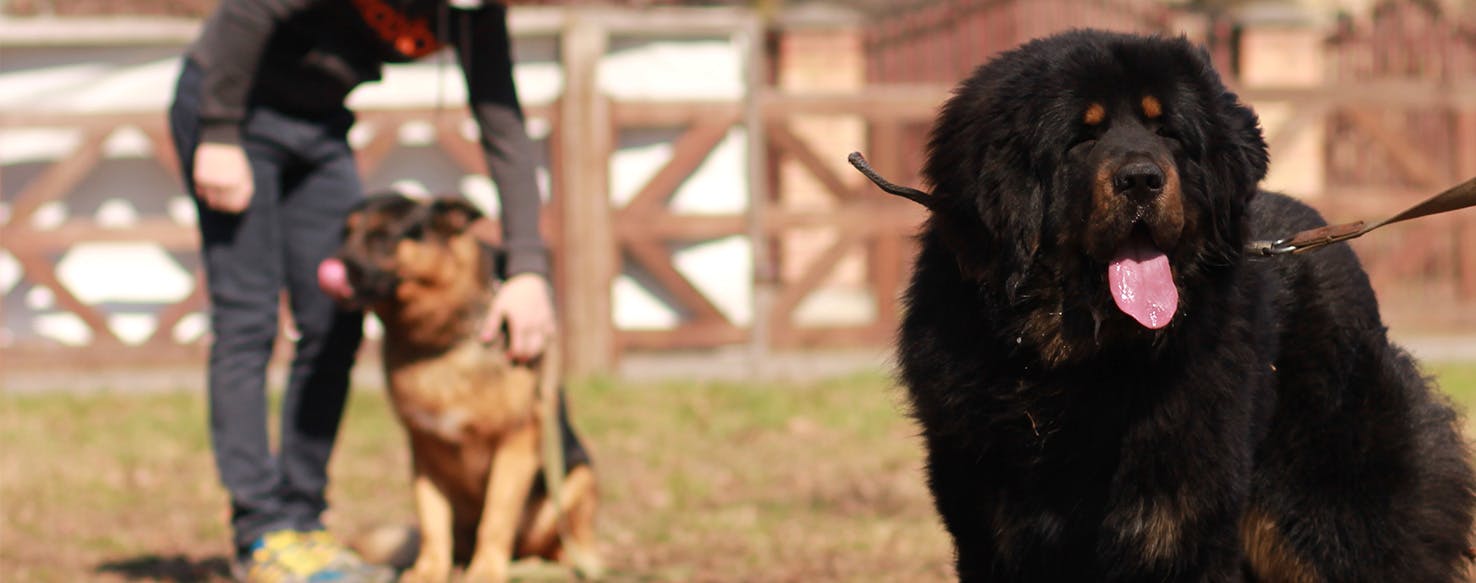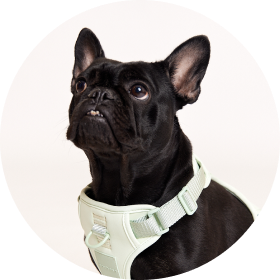- Home
- The Daily Wag!
- Senses
- Can Newfoundland Dogs Live in Florida?

Ah, Florida! To you, it might seem like the balmy, tropical, beachy haven that could be the location of your next paradise home - but does your Newfoundland agree with you? If you've got yourself a fluffy, furball Newfoundland for a dog, you might want to take your climate into consideration when choosing where you make your home.
What do we mean by this? Stop counting the palm tree-lined streets and pay attention - your Newfie is a big fluffball, and might not be happy living in such a tropical condition. You've brushed him, right? You've seen the immense amount of hair that comes off him, so you know how much fluff he's really got.
So, can Newfies live in Florida? With the right precautions and stringent care, it's possible that they can. However, that doesn't necessarily mean they will be at their happiest. If you want to learn more about newfies, figure out which climates work best for them, and know which signs to look for when it comes to your fluffy dog's unhappiness in the Florida heat, read on! We've concocted a go-to Newfie-in-Florida guide to keep you up-to-snuff on what you need to be watching out for when it comes to your dog's comfort.
It's important to always keep a lookout on your dog's well being, especially when it comes to keeping them cool enough. You have a bit of an extreme situation, though. You've got yourself a Newfoundland. They are wonderful, good-natured, exceptional dogs - who happen to be giant puffballs of fluff. All that fur can get hot, and if you live in a warm climate, like Florida, that can pose serious risks for your dog.
Keep a close eye on your dog in Florida, especially in the blistering summer. If you notice that your dog is panting a lot with almost no activity or movement, that's a good first sign that they may be overheating. Dogs pant to cool themselves down, and if your dog is panting without any physical activity, it's likely he's suffering from too much heat.
If you think your dog is too hot, it's important to look for signs of heatstroke. If your dog starts to vomit, can't sweat through his paws, has diarrhea, irregular breathing, and can't seem to function like normal, it's likely that the heat is causing him extreme distress and he needs to see a vet immediately.
Body Language
It's possible that your dog is giving you all the signs you need to know that he's not feeling up to snuff. Make sure you're keeping watch for signs like:
- Ears Drop
- Pacing
- Weakness
- Raspy Panting
- Drooling
- Lack Of Focus
- Pupils Dilated
Other Signs
Your dog is probably trying to tell you in his own way that he's suffering. Are you paying attention? Look out for the following signs that your dog is overheating:
- Inability To Sweat Through Paws
- Diarrhea
- Vomiting
- Lack Of Appetite
- No Interest In Moving Or Playing
- Pale Or Dry Gums
- Unable To Catch Their Breath
There are a few different causes of heatstroke for your pup, but one of the main ones is a rapid increase in body temperature. This is certainly something you should be wary of when you're living with a Newfoundland Dog in Florida. This condition can be fatal for your dog, so it's important you don't take it lightly.
The actual cause of heatstroke is an elevation in body temperature - often hand-in-hand with dehydration - that your dog's body cannot keep up with to regulate. In Florida, especially in the summer, the temperature can skyrocket in the 100s, and with the humidity as a combination, it's not unlikely that your dog will suffer from heatstroke symptoms unless you care for them properly. Dogs can also suffer from heatstroke or hyperthermia due to a bacterial infection, so it's important to look out for those symptoms as well.
Understanding the ways that heatstroke works is the first step to combating it for your fluffy Newfie. So, let's dive right into it.
Heatstroke happens to your dog when the heating mechanisms of his body cannot accomodate the excessive heat he's experiencing. Your doggo can experience these when his body temperature skyrockets to over 106 degrees. This condition can lead to terrible things like organ dysfunction, brain issues, and in severe cases, death.
This condition is often called hyperthermia and can be categorized as either with a fever or without a fever. Fever will typically result from inflammation in his body, most likely from secondary bacteria issues, while non-fever will come from an increased body temperature (like from outside factors).
While we obviously recommend leaving cool-climate dogs like Newfoundlands in cooler climates, we can't always control where we have our pups. If you have to have your Newfie in Florida - or a similar climate - there are a few things you can do to make sure that your doggo is happy and comfortable, and most importantly, avoiding heat stroke.
First, make sure your dog always has plenty of water. In fact, give him more water than you think he needs - odds are, your pup is thirsty and will likely drink twice the amount he would in a different climate.
Make sure you're keeping your dogs coat well brushed. This goes a very long way with Newfoundlands. This will keep them tangle and mat-free! The dead undercoat can heat your pup up and make them more subject to heatstroke.
Start thinking about cooling pads, too. These pads are placed in the freezer and used on your dog when they start to get too hot. They come in all kinds of sizes, so your giant Newfie can use them for sure.
Train your dog to get accustomed to outside-time early in the morning and later at night when the sun is more forgiving. You don't want your pooch running around at the hottest part of the day. That's just asking for trouble! We also suggest getting a kiddie pool and training your pup to use it at his convenience!
Have questions or concerns about your pet?
Chat with a veterinary professional in the Wag! app 24/7.
Get Vet ChatWritten by a Great Dane lover Hanna Marcus
Veterinary reviewed by:
Published: 02/20/2018, edited: 04/06/2020
More articles by Hanna Marcus

